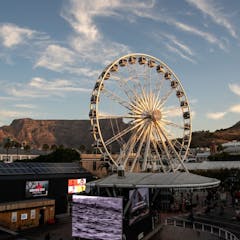
Articles on Green energy
Displaying 1 - 20 of 54 articles

Australia is expanding trade and investment with Southeast Asia to improve regional prosperity and global climate security. Here’s what to expect at the April 15-16 green economy summit in Vietnam.

Controversies haunt Indonesia’s ambition for nickel processing. It’s time Indonesia move away from supplying electric vehicle battery material narrative and focus on sustainability.

Prime Minister Anthony Albanese wants Australia to go “toe to toe” with the US in supporting green energy. Leading economists surveyed by the Economic Society are unimpressed.

Recent research about energy industry restructuring options for a green transition indicates that innovation in renewable energy positively influences GDP.

We’re going to build a lot more solar as we race to clean up the grid. But as the world heats up, solar will degrade faster in hot, humid areas. We need to plan ahead.

Gold hydrogen is naturally occurring gas trapped in pockets under the ground – in much the same way as oil and natural gas

It’s still possible for Australia to cut emissions in line with holding climate change to 1.5°C. Here’s how.

Some work is already being done to enhance the tourism sector’s environmental sustainability.

Solar energy is set for a rapid expansion – but only if several barriers are overcome, according to new research.

Over the past 60 years, the duration of flights has remained roughly the same, while passengers have been subjected to more indignities, longer waits and more cancellations.

In the fact of economic uncertainty, one question remains: Is it worth investing in a more sustainable Canada, or will it become just another economic burden?

LPG meets household needs, is easy to store and transport, and - crucially - is available now in the quantities needed.

Energy firms are likely to lie about their corporate social responsibility to the environment. Their deception can be turned around for good if they are held accountable.

A new generation of flexible solar cells has been pioneered using a material known as perovskite.

Grey seals are now common in the UK – but their status remains fragile.

Market volatility and rising development costs have led to an increase in the risk premium in recent years.

Funding is still central in developing new and renewable energy in Indonesia. Research shows that Indonesia could raise US$12.29 billion per year from public fundraising.

After years of neglect, Australia’s environmental crises can wait no longer. Here’s what our new government can do quickly to begin turning things around.

This week, Austalia began a climate pivot on its relationship with the region. Fossil fuels are out and exporting green energy and green manufacturing techniques are in.

Environmentalists are worried the shift to green energy means damage from more mines. But it doesn’t have to be this way.
